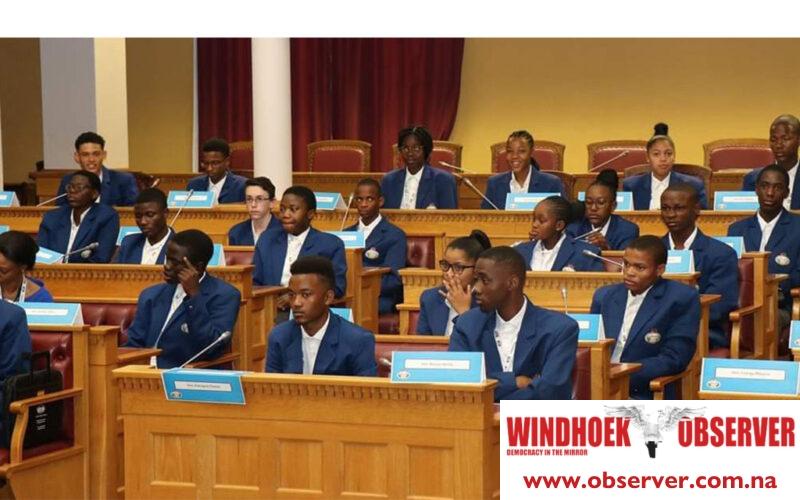Niël Terblanché
The sixth session of Namibia’s Children’s Parliament will convene on Friday at the National Assembly and will focus on finding solutions to the educational challenges faced by Namibian children.
The session, which starts today, and themed “Transforming Education in Namibia,” aims to tackle critical post-COVID-19 issues such as school dropouts and learner pregnancies.
Over 60 learners from Namibia’s 14 regions are expected to participate in the week-long session.
Before being sworn in for two years the young parliamentarians will undergo an intensive induction programme.
They will then break into standing committees to discuss and address pressing educational issues.
Since its inception, the Children’s Parliament has been instrumental in shaping progressive legislation, with over 98 motions tabled and debated.
One notable achievement is the adoption of the Learner Pregnancy Policy by the Ministry of Education, Arts and Culture.
This policy, lobbied for by the Children’s Parliament, allows young pregnant girls to return to school after delivery and provides a second chance for those who fail Grade 10.
According to statistics from the Ministry of Education, Arts and Culture, more than 15 000 learners dropped out of school in 2021, with more than 2 000 of these cases attributed to learner pregnancies.
The Learner Pregnancy Policy aims to reduce these numbers by offering support and opportunities for young mothers to continue their education.
The Children’s Parliament has also contributed to the Child Care and Protection Act, incorporating inputs from its fourth session.
This has led to increased grants for orphans and vulnerable children, highlighting the Parliament’s role in advocating for the rights and welfare of Namibian children.
Speaker of the National Assembly, Professor Peter Katjavivi, stressed the importance of the Children’s Parliament in empowering youth to engage in democratic processes.
“The Children’s Parliament empowers youth to engage in the democratic processes, shaping a future where every child’s voice is heard and their rights are upheld,” he said.
Katjavivi expressed hope that this session would produce actionable recommendations for a transformative education system in Namibia.
“This session is set to generate actionable recommendations that can contribute to a transformative education system in Namibia,” he said.
The Children’s Parliament has also played a role in global discussions, participating in prominent international forums such as the Inter-Parliamentary Union.
This involvement highlights Namibia’s commitment to incorporating youth perspectives in both national and international dialogues.
President Nangolo Mbumba will officially open this year’s Children’s Parliament session, setting the stage for a week of meaningful discussions and potential policy advancements.
The commitment and insights of these young leaders will drive progress in addressing the educational challenges faced by Namibian children, paving the way for a brighter future.




